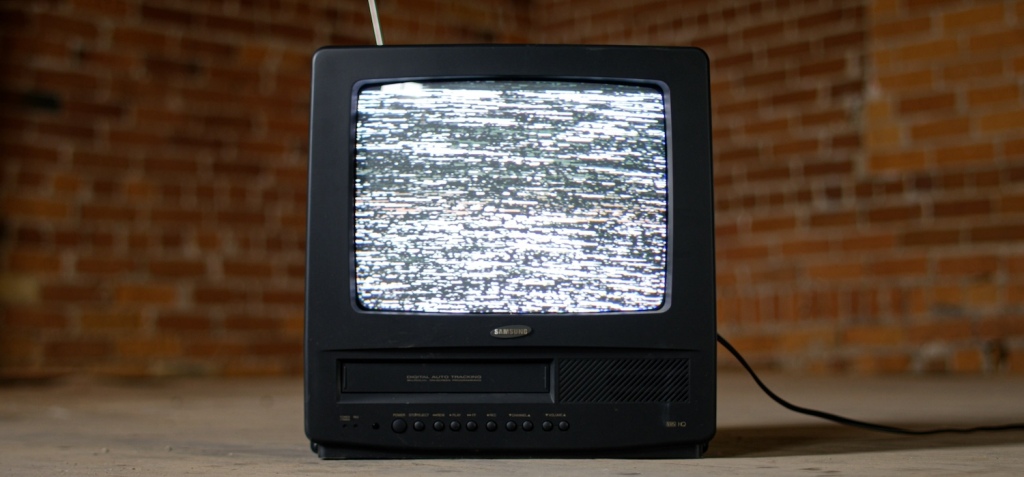
When many Americans remember the civil rights movement of the 1950s and 60s, they call to mind televised moments. The brutality of “Bloody Sunday” during the Selma protests. Dr. King standing in the shadow of the Lincoln Memorial delivering his “I Have a Dream” speech. The hideous images of children attacked by firehoses during the Birmingham campaign. Given that media coverage of protests was an integral part of said civil rights movement, the title of Gil Scott-Heron’s revolutionary anthem “The Revolution Will Not Be Televised” strikes many as odd. Wasn’t the revolution televised? Didn’t backlash against the cruelty of Jim Crow segregation, in part fueled by the media, help to bring it to an end? And, didn’t King and other civil rights leaders specifically seek out media attention in order to “dramatize” the abuses Black people suffered?
These are good, reasonable questions, and indeed the broad answer, at least to the final two questions, is yes. However, said questions and answers don’t undermine Scott-Heron’s message. In fact, once we delve a bit deeper, I argue that his words reveal an important truth about the civil rights movement of the 50s and 60s, and impart wisdom to those of us who wish to continue the unfinished work to dismantle racism and injustice in our world today.
To begin, we must take a closer look at the lyrics to “The Revolution Will Not Be Televised.” The song begins, “You will not be able to stay home, brother. You will not be able to plug in, turn on and cop out.” In other words, you can’t avoid the revolution by withdrawing to your home and viewing it on TV. Later in the song, he further argues that when revolution comes, it will happen because Black people are in the streets making it happen:
Green Acres, The Beverly Hillbillies, and Hooterville
Junction will no longer be so damned relevant, and
women will not care if Dick finally gets down with
Jane on Search for Tomorrow because Black people
will be in the street looking for a brighter day.
The revolution will not be televised.
The song ends with the statement, “The revolution will be no re-run brothers; The revolution will be live.”
Based on this brief look at Scott-Heron’s lyrics, I conclude that he’s not arguing against the use of media pressure as a part of one’s revolutionary strategy. Rather, he argues that, when the revolution comes to you, you won’t be able to opt out by tuning in on television. The revolution will shake up your life, whether you want it to or not. Indeed, the Northern white supporters of King found this out when he showed up in their backyard.
Though it is not memorialized in the same way as earlier campaigns, in 1965, King and the Southern Christian Leadership Conference focused their efforts on the city of Chicago and the oppressive housing segregation and general oppression of Black people that existed (and exists) there. Quickly, many of the white people who had applauded King’s efforts in the South came to regard him as at least a nuisance, if not a dangerous extremist. Reflecting on the hostility of those who opposed him, King stated, “I have never seen, even in Mississippi and Alabama, mobs as hateful as I’ve seen here in Chicago.”
When they were content watching King on television, most white Northerners had at least some sympathy for King’s efforts. After all, the real racists were the Southern, uneducated bigots. But, when they were no longer watching news coverage and forced to confront the revolution that threatened their way of life, these same people often changed their minds regarding the need for justice and equality for their Black neighbors. They didn’t want to participate, they wanted to view the revolution from a safe distance.
In closing, I’d like to reflect on one thing that Scott-Heron and King can teach us today. They teach us that a revolution requires participation and sacrifice. You can learn a lot about what you value by what you are willing to give up for the things or people you say you value. In particular, white people like myself who wish to be allies in the struggle for justice and equality must find ways to use our unearned privilege for the cause and ultimately move towards a society such that those privileges do not exist. Watching, live-tweeting, or streaming the revolution is not sufficient. As Scott-Heron says, “The revolution will be live.”


